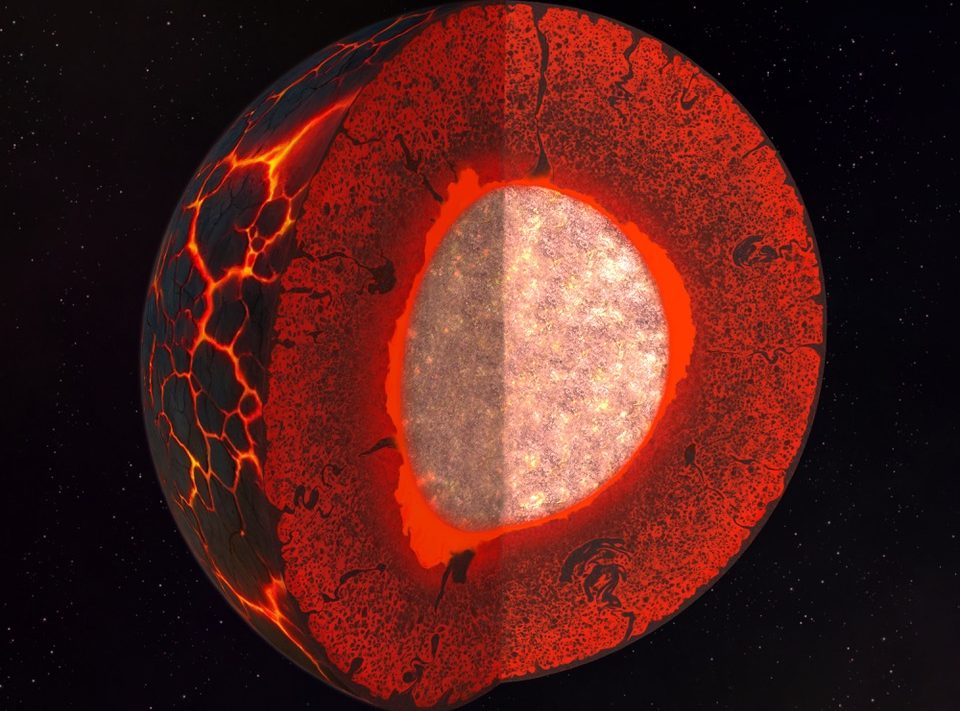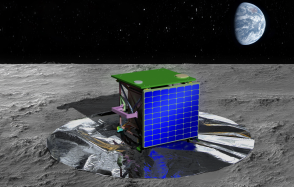Solidification of the Earth’s mantle: new insight into the formation of a basal magma ocean
An international team of researchers from the Institut de physique du globe de Paris (IPGP – CNRS / IPG / Université Paris Cité) and York University has revisited the interpretation of geophysical structures rooted at the base of the Earth's mantle. Their work challenges traditional models of the solidification of Earth's primitive mantle. Through advanced numerical modeling, incorporating a multiphase fluid dynamics approach, this study sheds new light on the chemical and thermal differentiation processes that led to the formation of a basal magma ocean.

Solidification of a primordial terrestrial magma ocean gradually leading to the formation of a basal magma ocean / @Nicolas Sarter
Publication date: 27/03/2025
General public, Press, Research
Related teams :
Cosmochemistry, Astrophysics and Experimental Geophysics (CAGE)








